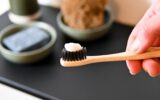Daily decisions either reinforce or undermine the pelvic floor strength. Lifestyle patterns significantly impact the quality of pelvic floor functioning, particularly in terms of exercise programs, nutrition, and stress management. Most people fail to notice these subtle inter-relationships until they begin to feel discomfort or health problems. It is essential to raise awareness of preventive and supportive habits. Pelvic floor therapy in Miami, FL, can also be beneficial for anyone seeking to regain strength and balance.
Lifestyle Choices That Shape Pelvic Floor Health
Our pelvic floor is the key to stability, bladder control, sexual wellness, and core support. Lifestyle habits can either weaken or strengthen us without our knowledge. We are discussing the effect of exercise, nutrition, posture, stress, and other factors, knowing their impact on pelvic floor wellness today.
Impact of Physical Activity on Pelvic Floor Strength
Frequent walking helps improve circulation and muscle strength, but overexertion or improper exercise can harm the pelvic muscles. Intensive exercises, such as heavy lifting or jumping back and forth, can occasionally lead to long-term weakening unless accompanied by adequate core engagement. Simultaneously, yoga, Pilates, and targeted stretches are exercises that enhance flexibility and overall functioning.
Pelvic health specialists tend to prescribe workouts based on individual needs. Mindfulness of how to breathe correctly and in core alignment creates a noticeable difference. Customized activity plans may enhance the overall outcome and recovery of patients with a history of pelvic care or even men seeking erectile dysfunction treatment in Miami, FL.
Influence of Nutrition and Hydration
The diet is a direct contributor to pelvic wellness. Fiber-rich foods can help alleviate constipation, thereby reducing excessive pressure on the pelvic floor. Water helps maintain healthy bowel movements and bladder function. The bladder can be irritated by processed food, excessive caffeine, and alcohol, which can cause discomfort or urgency.
Attention to nutrition prevents long-term complications. Creating meals with lean proteins, vegetables, and whole grains can provide long-lasting energy and keep the digestive system functioning optimally. Such habits, when combined with adequate hydration, can even help preserve the muscles that support bladder and bowel function.
Role of Posture and Daily Habits
The manner in which people sit, stand, and move daily affects the balance of the pelvic muscles. The long-term effects of slouching or improper lifting can place undue strain on the lower back and pelvis. This can, in the long run, lead to weakness and discomfort. The selection of ergonomic seating and consideration of alignment during activities have a significant impact.
Daily awareness promotes preventive care. Mindful sitting and standing, like not sitting too long, repositioning workstations, or exercising the pelvic floor, are all in the name of a stronger pelvic floor. With repeated repetition of small corrective habits, noticeable strength improvement will be seen.
Connection Between Stress and Pelvic Tension
Stress is not only a burden. The body can then tend to react by tightening or gripping the muscles, including the pelvic floor muscle. Chronic tension can make one feel uncomfortable, painful, or dysfunctional. Mind-body techniques, such as meditation, deep breathing, and gentle stretches, help the pelvic muscles relax and therefore heal.
It is crucial to realize the importance of mental wellness. Balance is promoted by stress management techniques, which help eliminate undue tightness. Consistent relaxation processes are integrated into holistic pelvic care, complementing professional treatments and promoting overall well-being.
Effects of Pregnancy and Postpartum Recovery
Pregnancy places significant demand on the pelvic floor due to weight changes, hormonal shifts, and delivery. After giving birth, many women feel weak, have incontinence, or have discomfort. Guided exercises and therapy as a form of rehabilitation aid in recovery and regain muscle functionality.
Postpartum care should include education about the gradual strengthening techniques. Professional assistance ensures a safe course and helps avoid long-term problems. New mothers protect their mobility, confidence, and future quality of life by addressing pelvic health at an early stage.
Impact of Aging and Hormonal Changes
As individuals age, natural shifts in hormone levels influence pelvic floor strength and elasticity. Changes may be more pronounced in women in menopause because of reduced levels of estrogen. Men can also be afflicted with gradual weakening associated with hormonal changes. These alterations influence bladder control, sexual functioning, and comfort.
At this point, active care and therapy are necessary. Complications can be reduced through strengthening exercises, medical consultation, and lifestyle changes. Adopting these practices promotes strength, and growing older can be a more straightforward process with fewer issues with the pelvis.
Benefits of Seeking Professional Pelvic Floor Therapy
Lifestyle habits provide a solid foundation, but a professional evaluation ensures personalized support tailored to your needs. Instructed experts evaluate personal issues and create specific exercise regimes that improve functional ability. Manual methods, teaching, and assisted strengthening are often used together during therapy.
Most individuals remain inactive until the problems become apparent, but when addressed early enough, the involvement of professionals is likely to avert serious complications. Through therapy, individuals become empowered and can take control of their health. As residents are interested in holistic care, locally available pelvic floor treatments can offer preventive care and expedite recovery.
Conclusion
The health of the pelvic floor is highly influenced by an individual’s lifestyle choices at any age. Decisions of exercise, diet, posture, stress, pregnancy, and aging are all key factors. Consciousness has enabled people to practice supportive behaviors and minimize the risks of dysfunction. Resilience is fostered through professional therapy, where guidance and support are provided as needed. Pelvic floor therapy in Miami, FL, can be beneficial for anyone seeking to maintain their well-being and improve their comfort in everyday life.



